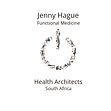Supplements - How to avoid the "snake oil" salesman.
- Nov 26, 2023
- 4 min read
Updated: Dec 31, 2023
The term “snake oil” is a popular euphemism for ineffective or fraudulent products, particularly those marketed as medicines or cures. The original "snake oil" salesman was actually a real dude! Clark Stanley, also known as the “Rattlesnake King”, was born around 1854 in Abilene, Texas. He was an American herbalist and quack doctor who marketed a “snake oil” as a patent medicine. Stanley claimed that, starting in 1879, after eleven years working as a cowboy, he studied for more than two years with a Hopi medicine man at Walpi, Arizona.

This supposedly included learning the "secrets of snake oil". It turned out that the actual ingredients were mineral oil, a fatty compound thought to be from beef, capsaicin from chili peppers, and turpentine. He was fined $20.00 (approximately $470 in 2019).
The potential dangers of an unregulated supplement industry.
And a century later, here we are with snake oil coming out our ears, with a vast number of supplements marketed and sold without routine oversight.
1. Misinformation
Researchers found that 100 percent of supplements industry press releases contained spin, meaning strategies to hype or denigrate findings to distort the results of clinical studies. To make it worse , supplement industry press releases advocated supplement use in 90 percent of cases in which studies reported that taking a supplement had no benefit or even caused harm.

A private, third-party company that has independently tested thousands of supplements identifies approximately 1 in 4 with a quality problem because;
1. The product does not contain what it says it contains.
2 What it contains is of substandard quality,
3. The product is contaminated in some way.
2. Health Risks
There is very little data available in SA but in the US, poorly regulated dietary supplements are known to harm at least 50 000 people every year. This still pales in comparison to the dangers of prescription medications, but no harm is still better.
Prescription medication is the 3rd highest cause of death in the USA with over 300 000 people killed by meds prescribed by doctors
The US FDA has identified hundreds of dietary supplement that have been adulterated with prescription medications or designer drugs that haven’t even been tested, which could represent an enormous risk to consumers.

These are most often found in erectile dysfunction, weight loss, diabetes, and high blood pressure supplements. About half of the most serious drug recalls in the U.S. aren’t for drugs, but for supplements—yet two-thirds were still found on store shelves six months later.
3. Lack of transparency
Because supplements are not regulated, the industry is not motivated to conduct proper studies to determine their safety and efficacy. Lets review some examples.
1. A study conducted by researchers at Harvard University examined 21 brands of dietary supplements claiming to contain a herbal stimulant called Acacia rigidula. In fact, more than half of the brands analyzed contained an untested amphetamine isomer called β-methyl-phenylethylamine (BMPEA).

The supplements were marketed to help people lose weight and to enhance energy. It appears that BMPEA is intentionally added to these supplements for its stimulant properties and since it is not listed on the labels of these products, consumers have been unknowingly ingesting this untested stimulant.
2. Then, there’s inadvertent contamination with potentially hazardous contaminant[s] such as heavy metals. More than 50% of protein powders tested have heavy metals in excess of what is considered to be safe. In a large independent study of herbal supplements, it was found that more than 90% were contaminated with pesticides, mycotoxins and potentially carcinogenic fungal toxins, like aflatoxin. Milk thistle supplements were the worst, with most having more than a dozen different mycotoxins

This is thought to be because the plant is harvested specifically when it’s wet; and so, it can get moldy easily. Milk thistle is taken to support liver function but poor quality products expose you to immunotoxin, genotoxic, and hepatotoxic, meaning liver-toxic—contaminants
So now what?
It may seem like we are between the proverbial rock & a hard place. Prescription medication is a known killer and the supplement industry looks sketchy to say the least but there is a way to navigate this space safely.
Functional Medicine has the answers
Functional Medicine Practitioners are the best trained professionals in this field. Functional medicine is a holistic and personalized approach to health care that focuses on identifying and addressing the root causes of chronic diseases, rather than just the symptoms. In terms of making the right supplement choices for you and your family, Functional Medicine Practitioner Jenny Hague has a 3 step approach.

1. Correct Testing
Find out what your current nutritional status is and what your genetics pre-dispose you to. This sounds simple, but traditional medicine does not conduct the investigations needed to find that out, and funders don't pay for them, but doing the correct testing is a critical step.
2, Correct Products
Select the correct products. Again, sounds simple but product quality, bio-availability, price and mode of action are key questions as well as procuring products that include what's on the label & do what the manufacturer claims.
High quality supplements are not cheap but do pay for what you get.
3. Correct Lifestyle Changes
Physical Activity and high quality Nutrition are the best supplement on the planet and must be taken in conjunction with any products.
We are proud stockists of world class supplement brands and DNA testing
Click on the images below to visit our online store and learn more about these high quality brands
Join our Facebook Group and learn how quality supplements contribute to preventing, treating and reversing chronic disease.
Click on the image to join the group















Comments